Spellbound by the Tudors
Henry VIII, Anne Boleyn, the Virgin Queen--why does one English family keep popping up in novels, movies, musicals, and more?
I’ve just finished C. J. Sansom’s latest detective story, Tombland, which takes place in the reign of Edward VI. The boy king’s six years on the throne left us two unforgettable masterpieces. One is Hans Holbein’s astonishing portrait of Edward as Prince of Wales.
The second is The Book of Common Prayer which changed England’s religion and its language. Its publication introduced phrases such as “Speak now, or forever hold your peace.” You’ve probably quoted from it more than you know, regardless of your beliefs.
Tombland is wonderful. It kicks off with a bizarre murder and moves on to an ingenious assortment of suspects with dubious motives and alibis. Author Sansom incorporates the era’s turmoil. His characters include landlords enclosing the common grazing lands, farmers losing their livelihoods, and the rebels who fought back. His depiction of the failed Kett’s Rebellion is perceptive and then heartbreaking. I whizzed through Tombland (which is not a short book) and highly recommend it to anyone who loves mysteries and the Tudors.
And speaking of the Tudors, why do they still captivate us after all these years? Henry VIII, Anne Boleyn, Elizabeth I, her unlucky distant relative, Mary, Queen of Scots—why do novelists, dramatists, and librettists keep coming back to them? Six, a musical about Henry VIII’s six wives, has become an international hit. In 2023, Six was playing on Broadway and in London’s West End, in addition to US and UK tours and cruise-ship productions. With performances slated for South Korea, Amsterdam, and Toronto, Musicals Magazine declared that “The Queens have gone global.”
The Tudor family ruled for 118 years, beginning with Henry VII and ending with Elizabeth I. During that time, England changed from a small country divided by civil war into a naval power headed toward worldwide commerce and colonization. Henry Tudor (Henry VII) became king after defeating Richard III in the Battle of Bosworth Field. Despite reigning for twenty-four years, the first Tudor has never garnered the popular attention showered on his descendants. Shakespeare’s history plays skip right over him, going from Richard III to Henry VIII. Apparently, he doesn’t offer much dramatic potential, and he only had one wife.
By the time Elizabeth I died, the Tudor kings and queens had sown the seeds of the British Empire, and history will judge them for that. Even at home, they ruled over a land of staggering cruelties and inequities: widespread subjugation of women; relentless exploitation of the poor; merciless prejudice against anyone with physical disabilities. Religious fanaticism and trumped-up charges of treason killed thousands. This was a pitiless age.
Why do we still want to write and read about it? You might think we’d try to avoid such a bleak era and choose stories about leaders who produced better results for their people. It’s just one family. It all happened more than four hundred years ago. Why do the Tudors still interest us?
Since my own forthcoming novel is set in Tudor times, I can testify to its allure for novelists. My protagonist is a little-known historical figure. Henry VIII and Anne Boleyn are minor characters. So let me explain what drew me to the Tudors when I began writing historical fiction:
1. The women held their own.
Men often dominate history and historical fiction because that’s the way it was. In fact, Henry VIII divorced one wife and had another killed in his obsession to have a son. Yet a decade after his death, Mary I and Elizabeth I ruled in their own names. They were formidable heads of state no matter what you think of them. Henry’s first two wives—Katherine of Aragon and Anne Boleyn—were sophisticated and articulate. Katherine refused to meekly step aside so Henry could marry Anne Boleyn. She brought the Pope and much of Europe to her side. Anne Boleyn insisted on being a wife, not a mistress. Her demands ignited the Protestant Reformation in England.
2. They were romantics.
“Great” historical yarns often revolve around war and conquest—witness Alexander the Great, Julius Caesar, and Napoleon. The Tudors fought wars and triumphed over the Spanish Armada, but we mainly remember them for their passions. Henry VIII was swept away by Anne Boleyn. He risked his soul and split his kingdom apart to marry her. Elizabeth I steered clear of marriage, but we haven’t stopped wondering about her dalliances with Sir Robert Dudley and the Earl of Essex.
Mary, Queen of Scots, who claimed the Tudor throne, let her heart rule her head. She married two reckless men who contributed to her ruin. Also, at the time, wealthy men wore fancy codpieces. I leave it to you to ponder the implications of this fashion.
3. They lived dramatic lives.
Many of the Tudors died young, and more than a few lost their heads. Anne Boleyn famously reigned for only a thousand days. Lady Jane Grey reigned for nine before being sentenced to death. Some 80,000 Tudor subjects were executed, many for religious or political reasons. Perilous times and unforeseen dangers are the building blocks of tension-filled plots. Tudor stories deliver on that score and then some.
4. In the end, we can never understand them.
Countless words have been written about the Tudor kings and queens. We even wolf down narratives about subordinates like Thomas Cromwell and Thomas More. Yet we still debate their intentions. Did Henry VIII do what was needed in brutal times, or was he simply murderous? Was Anne Boleyn a savvy reformer or a scheming temptress using sex to advance herself? Maybe she was both.
In writing my own novel, I found myself repeatedly drawn to the unknown and unknowable aspects of these legendary figures. What was inside their hearts and minds? In the end, what we know about them is so puzzling and often tragic. And yet, we can only glimpse shadows of who they were.




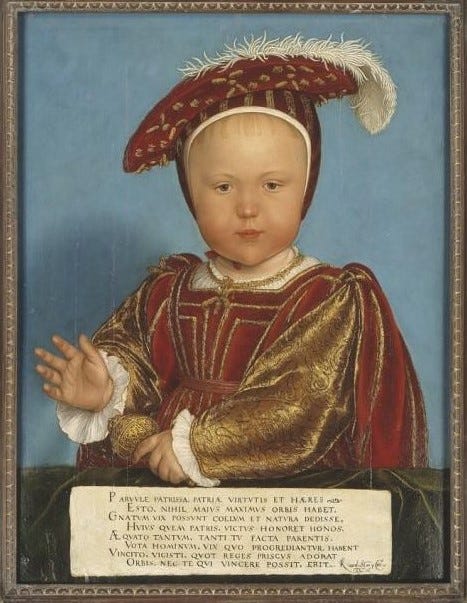
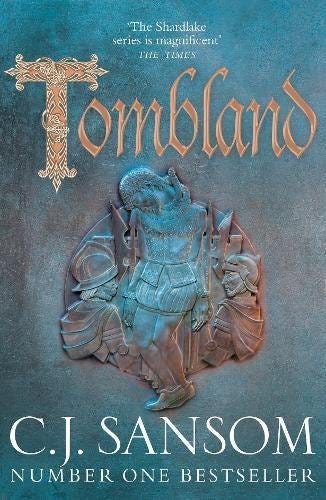

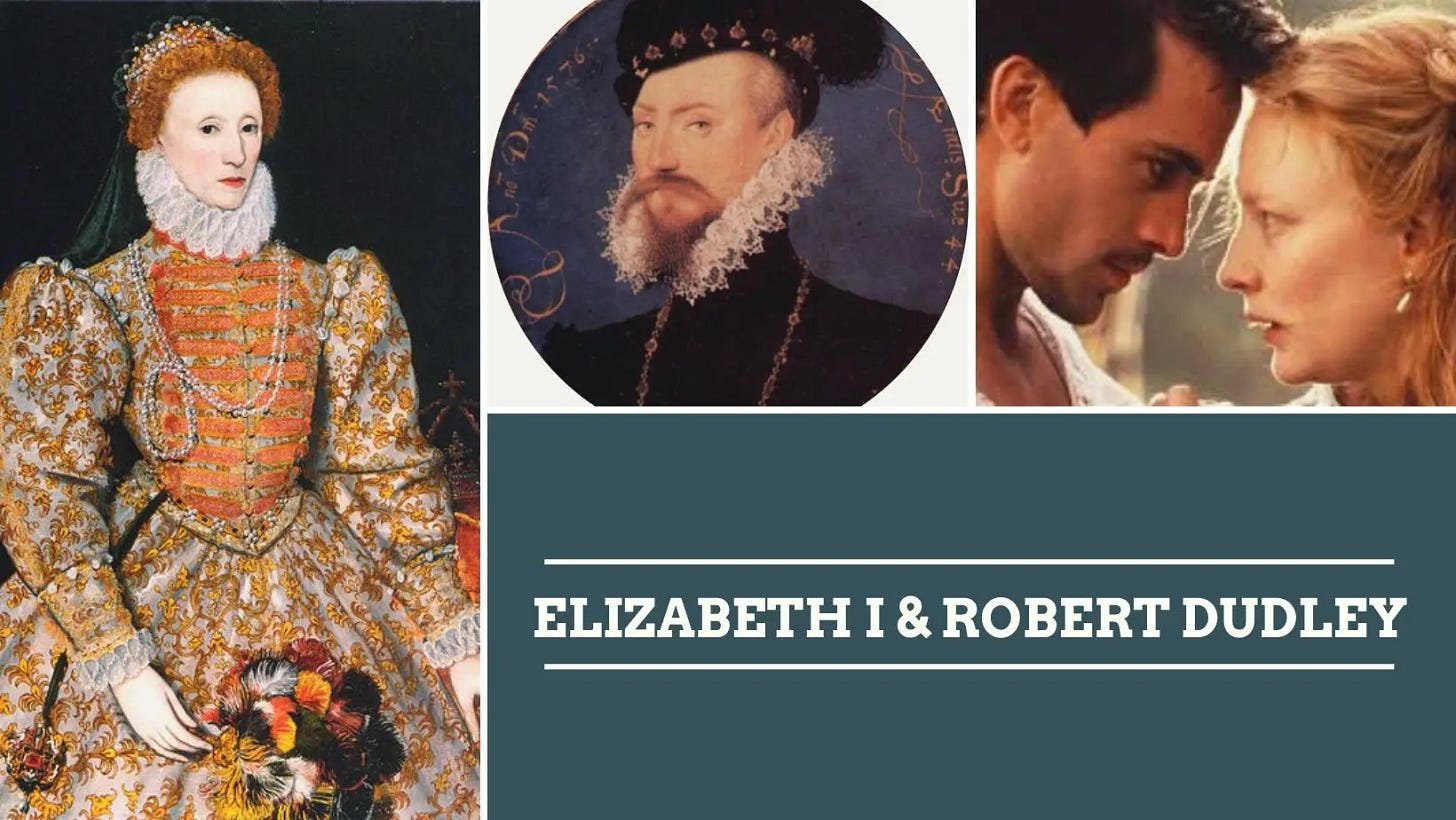
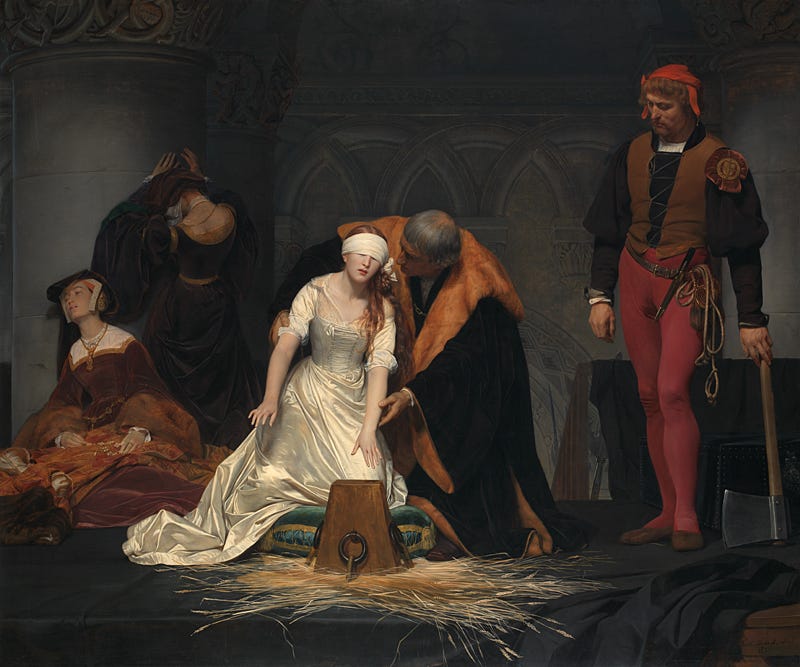
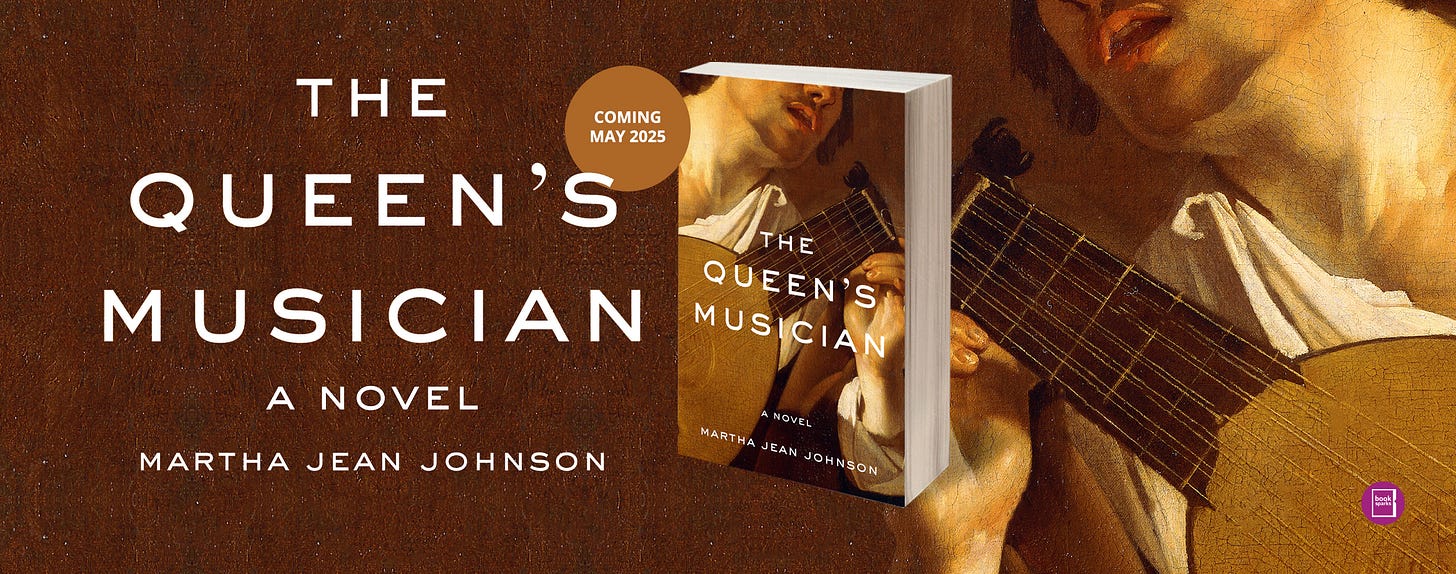
You have me intrigued...why does this time still grab our imaginations? The power those women wielded! Great job setting me up with some curiosity!
Wow!
Super interesting.
Thanks
I can't wait to read your novel.
Geraldine